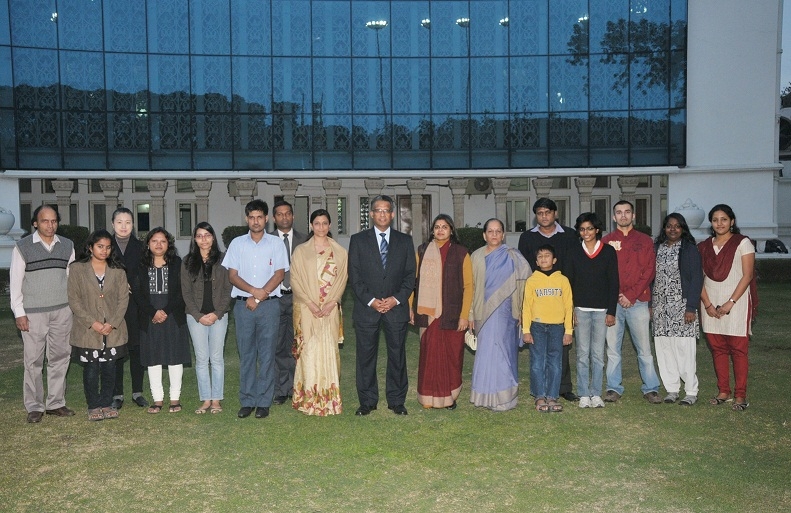
The Centre for Historical Studies of the Jawaharlal Nehru University (JNU) in New Delhi, in collaboration with the High Commission of Sri Lanka and with the support of the India-Sri Lanka Foundation, has commenced a new course entitled “State, Society and Religion in Sri Lanka, from circa 3rd century BCE to 13th century CE”, with specific focus on Anuradhapura and Polonnaruwa period.. The reference books required for this course have been procured and placed in the Library of the High Commission of Sri Lanka in New Delhi for research work of the students. Forty students have already enrolled in this course, which is expected to broaden to understanding of Sri Lanka’s relations with India in its historical context as well. This initiative is considered as the first in India to teach Sri Lankan History through specifically designed course of study in a University.

The Centre for Historical Studies of the Jawaharlal Nehru University (JNU) in New Delhi, in collaboration with the High Commission of Sri Lanka and with the support of the India-Sri Lanka Foundation, has commenced a new course entitled “State, Society and Religion in Sri Lanka, from circa 3rd century BCE to 13th century CE”, with specific focus on Anuradhapura and Polonnaruwa period.. The reference books required for this course have been procured and placed in the Library of the High Commission of Sri Lanka in New Delhi for research work of the students. Forty students have already enrolled in this course, which is expected to broaden to understanding of Sri Lanka’s relations with India in its historical context as well. This initiative is considered as the first in India to teach Sri Lankan History through specifically designed course of study in a University.
A team of fifteen students, who have enrolled in this course of study on Sri Lankan History at JNU will undertake a full study tour to Sri Lanka from 10th to 22nd December 2012, once again supported by the India-Sri Lanka Foundation.
The students will visit places such as Anuradhapura, Polonnaruwa, Kandy, Dambulla, Mihintale, Jaffna, Trincomalle, Kataragama and Adam’s Peak. They will attempt to relate their readings by a first-hand experience of the religious and socio-cultural life of the Sri Lankans, and are expected to interact with different sections of the Sri Lankan society to learn about how tradition and modernity are interwoven in the lives of ordinary people.
Besides site visits to places of historical importance, they intend to visit institutions such as the University of Kelaniya, the Asiatic Society of Colombo, the Department of Archaeology and the National Archives.
This field study visit will enable the Indian students to get a glimpse of the rich civilizational and cultural connections that exist between the two nations and encourage them to undertake further research work on Sri Lanka.
Sri Lanka High Commission, New Delhi
11th December 2012




